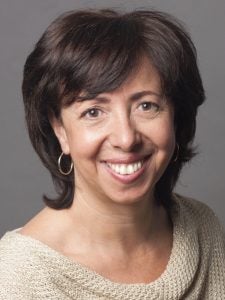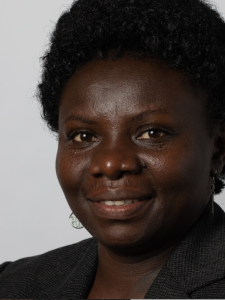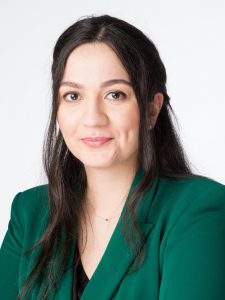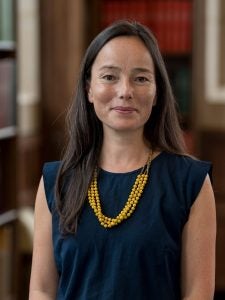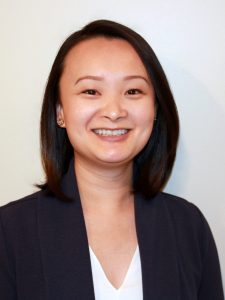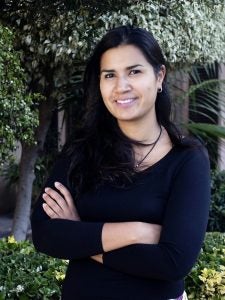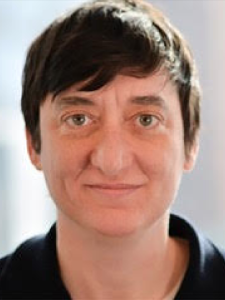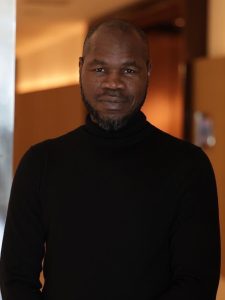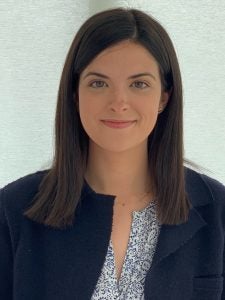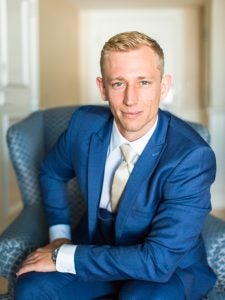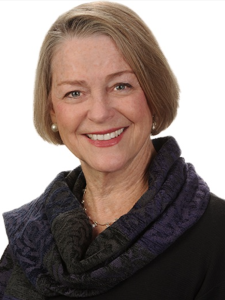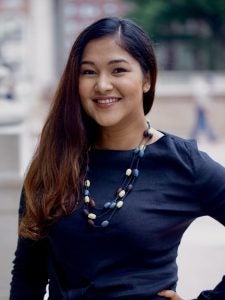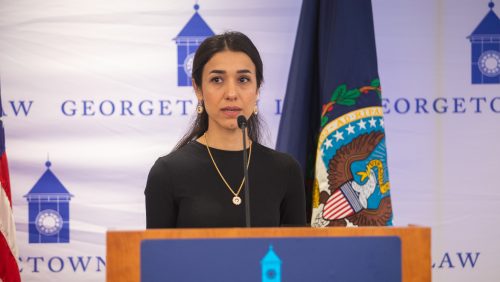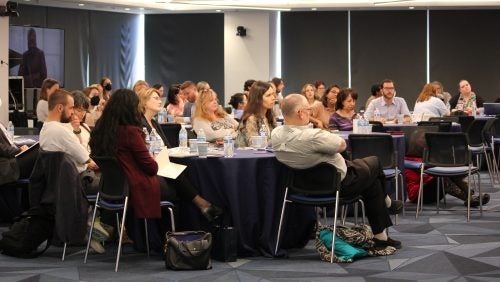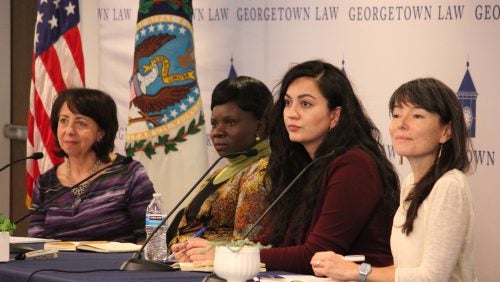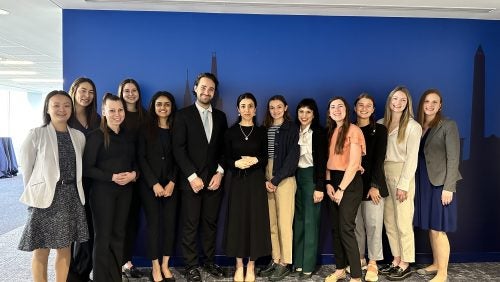2023 Samuel Dash Conference on Human Rights: Sexual Violence in Conflict
From ancient wars to the present day, sexual violence has been such a persistent and widespread feature of armed conflict that it is often viewed as an unavoidable consequence of war. But today, thanks to a movement which seeks to lift up and prioritize the views of survivors, that is changing.
The 2023 Samuel Dash Conference on Human Rights focused on conflict-related sexual violence (CRSV) and efforts to center the perspectives of survivors in recovery, accountability, and prevention.
Featuring advocates and survivor champions from around the world, the conference engaged lawyers and experts who are working to advance new strategies that put the needs, wishes, and human rights of survivors front and center. The conference also shed light on the unique experiences of male and LGBTQ+ survivors of CRSV and examined the inequities in support systems for these groups. Finally, the conference explored the “deep-rooted political, socioeconomic, cultural, environmental, and institutional drivers of conflict” as identified by the UN Framework for the Prevention of Conflict-Related Sexual Violence and examined approaches to preventing CRSV.
Keynote by 2018 Nobel Peace Prize Laureate Nadia Murad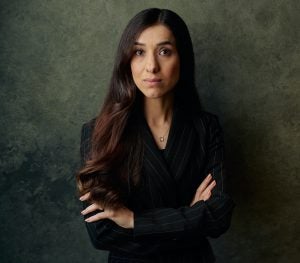
More than eight years after ISIS carried out its large-scale massacre and abduction of the Yazidis in 2014, the Yazidi community is still waiting for justice and accountability. To date, no international body or Iraqi court has tried ISIS members for genocide or sexual violence against the Yazidis. Nearly 200,000 Yazidis still remain displaced in internal displacement camps. An estimated 2,800 women and girls who were abducted are still missing. Survivors of sexual violence—many of whom have borne children as a result of rape—face legal and other barriers to rejoining their families and communities in Sinjar. The international community, including the United States, has a responsibility to advance justice and accountability for ISIS’s crimes against humanity, war crimes, and genocide.
The keynote by 2018 Nobel Peace Prize Laureate Nadia Murad featured her work at the forefront of the global effort to hold ISIS accountable for its crimes. Ms. Murad emphasized the need to place survivors of conflict-related sexual violence (CRSV) at the center of justice and accountability mechanisms, including by adhering to the principles outlined in the Murad Code on gathering and using information about CRSV.
“Survivors want justice. We deserve justice,” declared Ms. Murad. “We want the perpetrators to be held accountable. We want assistance in rebuilding our lives and on our own terms. We want, more than anything, for no one else to ever have to live with the trauma and violence that we have.”
Ms. Murad called on governments to turn policies into concrete action and on audience members to do their part to invest financial, political, and social resources in survivor-centric organizations. “Society asks survivors to share their stories,” Ms. Murad stated. “Don’t let it be in vain.”
She closed her keynote with the message that “together, we can build a world where conflict-related sexual violence is a disturbing story from our past, not our current reality.”
Keynote Speaker
Nadia Murad, 2018 Nobel Peace Prize Laureate and Human Rights Activist; Co-founder of Nadia’s Initiative; UNODC Goodwill Ambassador; Co-founder of the Global Survivors Fund; Author of The Last Girl: My Story of Captivity, and My Fight Against the Islamic State
Watch the keynote below.
Panel 1 — Centering the Survivor: Justice, Accountability, and Trauma-Informed Care
Overview
The United Nations defines a survivor-centered approach as one which seeks to empower the survivor by prioritizing their needs, wishes, and human rights. This includes ensuring that survivors and victims have access to and support from critical health services, the ability to demand accountability against their abusers, and mechanisms to seek justice and reparations. A true survivor-centric approach must be holistic, involving survivors and victims in every step of the recovery, accountability, and justice processes.
This panel highlighted the work and perspectives of advocates from around the world who are striving to place the needs and priorities of survivors front and center. The discussion explored what it means to truly focus recovery and justice on survivors and the structural changes in our healthcare and legal systems that must occur to achieve this type of justice.
HRI Executive Director Elisa Massimino, who moderated the panel, began with the impacts of CRSV on the individual. In response, Grace Achan spoke about the uniqueness of the trauma associated with sexual violence and the many challenges facing victims and survivors in navigating medical support systems, parenthood, gaining civil documentation, and reclaiming their futures. “The victim will not remain the same after the violence,” she stated. If the needs of a victim are not addressed, the traumatic effects can spill over into the community, affecting “the way that victims will interact with a community after, the way that victims will be able to get support, and the way that victims will be able to survive in the community.”
In discussing the ISIS conflict and the challenges facing the Yazidis in Iraq, Natia Navrouzov explained that ISIS fighters exploited the fact that Yazidis are a closed community in order to prevent the Yazidi women that they had enslaved from returning to their families. In the face of this, Yazidi spiritual leaders issued a groundbreaking decree to welcome back survivors of captivity with “honor and dignity,” said Ms. Navrouzov. Still, challenges remain. Yazidi widows are living in limbo, unable to make decisions for their families, because Iraqi law requires that a husband be declared deceased before his widow can make decisions for the household. Children born to Yazidi mothers as a result of CRSV also face legal obstacles to obtaining basic identity documents, as Iraqi law requires them to be “registered under the religion of their father.”
Professor Kim Thuy Seelinger stressed the importance of lawyers understanding the human dimensions of CRSV – from behavioral science to individual care – in order to make progress on the legal aspects of the pursuit for justice. Professor Seelinger explained the utility of the socioecological model used in the field of public health to examine the impacts of CRSV at the individual level, then the intrapersonal or community level, followed by the national level, and finally, the international level. “You can imagine how conflict-related sexual violence – a single act taken into context with other acts – can lead to national level and supranational level impacts,” she stated. “This helps us understand . . . the reverberations of one act of violence,” as well as the root causes and interventions.
Watch the “Centering the Survivor” panel below.
Panelists
Elisa Massimino (moderator), Executive Director of the Human Rights Institute; 2019-2021 Robert F. Drinan, S.J., Chair in Human Rights
Grace Achan, Co-founder of the Women’s Advocacy Network Uganda (WAN); Board Member of the Global Survivors Fund; Author of Not Yet Sunset: A Story of Survival and Perseverance in LRA Captivity
Natia Navrouzov, Legal Advocacy Director at Yazda
Kim Thuy Seelinger, Special Advisor on Sexual Violence in Conflict to the International Criminal Court Prosecutor; Technical Advisor to the Global Survivors Fund; Research Associate Professor at the Brown School, Washington University
Panel 1 — Centering the Survivor
Film Screening — The Prosecutors (2018), Talk Back with Director and Producer Leslie Thomas (F’86)
Overview
The Prosecutors, produced by ART WORKS Projects, is a feature-length documentary that tells the story of three dedicated lawyers who are fighting to ensure that sexual violence in conflict is not met with impunity. Filmed over five years on three continents, the film takes viewers from the Democratic Republic of Congo to Bosnia and Herzegovina to Colombia on the long journey towards justice. Following criminal cases in three different court systems, Director and Producer Leslie Thomas says that the film spotlights advocates around the world in “small town[s], in small courtroom[s] . . . taking on the world’s greatest crimes.”
Following a screening of an abridged version of the film, HRI Deputy Director Michelle Liu sat down with Leslie Thomas (F’86) to discuss her approach to storytelling, in particular on the legal journey towards accountability and uplifting the voices of experts, advocates, and survivors and victims with lived experiences of combating CRSV.
In many of the countries where she worked, “these laws are on the books. This was not a question of saying, ‘we need to fight to get these laws,’ this is [about] implementation,” she stated. “I wanted to tell the story of the people who are doing this work.”
Ms. Thomas also discussed challenges to closing the impunity gap but stated that she believes in the law. “I believe it is always going to be imperfect,” but “justice contains everything, and law is a piece of justice.”
Watch the film talkback below.
Panelists
Michelle Liu (moderator), Deputy Director of the Human Rights Institute; Adjunct Professor at Georgetown Law
Leslie Thomas (F’86), Director & Producer
Film Screening The Prosecutors (2018)
Panel 2 — Beyond the Binary: Prevalence and Impacts of Conflict-Related Sexual Violence on LGBTQ+ and Male Survivors
Overview
“Sexual violence is a threat to every individual’s right to a life of dignity, and to humanity’s collective peace and security,” says UN Secretary-General António Guterres. While rape and other forms of sexual violence disproportionately affect women and girls, research has documented CRSV against men and boys and people with diverse sexual orientations, gender identity, gender expression, and/or sex characteristics (SOGIESC). Still, both within the United Nations and around the world, male victims and survivors and people with diverse SOGIESC, who are also distinctly vulnerable to CRSV, have often been ignored or silenced.
Professor Fanny Gomez-Lugo moderated this panel on the unique experiences of LGBTQ+ and/including male victims and survivors of CRSV, inequities in support systems, and the underlying gender discrimination that renders these groups vulnerable and invisible. In focusing on the way forward, panelists spoke about protection, accountability, acknowledgment, and reparations for the victims and survivors. They also explored pathways towards more inclusive response efforts, which emphasize the needs of all survivors and promote dignity and human rights for all.
How can society create a stigma-free environment for survivors to speak out and fight back? Kolbassia Haoussou shared his experience as a survivor of torture, particularly the shame and stigma that can be associated with being a male victim of sexual violence. As a Survivor Empowerment Director at Freedom from Torture, Mr. Haoussou emphasized that helping survivors achieve justice depends on amplifying the voices of survivors themselves. In developing policies to strengthen support for survivors of sexual violence in conflict, particularly male survivors, there must be “nothing about us without us,” said Mr. Haoussou.
Patricia Ollé Tejero gave an in-depth presentation on CRSV as it affects men and boys, particularly on the scale, patterns, impacts, and barriers that victims and survivors face around the world in accessing support. As she explained, the work of the All Survivors Projects is “aimed at enlarging the scope of research, analysis, action, and responses to prevent [CRSV] and support survivors to include those who are not always easily identified or supported within existing action on CRSV.” In her words, addressing CRSV against men and boys matters because “understanding these and other dimensions of male vulnerability to CRSV will contribute to a more complete gender-responsive analysis . . . and will support the identification of legal, institutional, and social reforms needed to prevent the recurrence of such violations.”
Professor Lisa Davis spoke about the need to recognize “intersecting identities” that can put individuals “in a vulnerable situation” and “understand the discrimination that fuels the crimes that they experienced.” She explained, “What happens when we don’t recognize what happens to men is rape? We rob them of the holistic experience to say that they are also victims.”
Watch the “Beyond the Binary” panel below.
Panelists
Fanny Gomez Lugo (moderator), Adjunct Professor of Law at Georgetown; Former Senior Director of Policy and Advocacy at Synergía – Initiatives for Human Rights
Lisa Davis, Special Adviser on Gender Persecution to the International Criminal Court Prosecutor; Associate Professor of Law CUNY School of Law
Kolbassia Haoussou, Survivor Champion of the UK Preventing Sexual Violence in Conflict Initiative; Co-founder of Survivor Speak Out; Survivor Empowerment Director at Freedom from Torture; Member of the Most Excellent Order of the British Empire
Patricia Ollé Tejero, Senior UN Programmes and Prevention Advisor at All Survivors Project
Panel 2 — Beyond the Binary
Panel 3 — Breaking the Cycle: Approaches to the Prevention of CRSV
Overview
Sexual violence in conflict, both incidental and as a weapon of war, is a persistent and ancient phenomenon—so much so that most efforts to address it tend to focus on the aftermath of these heinous crimes: treatment, recovery, and justice. This grim cycle leads many to see sexual violence as an inevitable accompaniment to conflict.
But there is a growing body of research and practice that shows CRSV is not an inevitable consequence of conflict and prevention is possible. Moderated by Dr. Robert Nagel, this panel examined promising approaches that show that the risk of CRSV can be reduced.
In framing the discussion on CRSV, Dr. Nagel stated, “If we want to prevent it, we need to think about what exactly is causing it in the first place.” From a research perspective, “We think about causes in two dominant ways,” said Dr. Nagel. On the one hand, such as in Russia’s invasion of Ukraine, ethnic cleansing in Ethiopia, or the military’s targeting of the Rohingya minority in Myanmar, researchers think of CRSV “as a policy, as a strategy, as a weapon of war.” Research shows that the other contributing factor is “the idea of [CRSV] as a practice that develops from the bottom up.” In addition to being useful to prevention efforts, said Dr. Nagel, this causal analysis is important because, depending on the structural level (whether individual, organizational, or international), “different causes require different strategies and different entry points.”
Dr. Kathleen Kuehnast highlighted the problem of the gender binary as contributing to a blind spot in understanding the root causes of CRSV. Although we now have a “brilliant agenda called Women, Peace, and Security,” gender is not another name for women, she said, and we have “divided the world in such a way that we have left many parts and many people out of that world.” Dr. Kuehnast advocated for more courses on gender in law school, as well as the need to build inclusive gender definitions and analysis into our legal and educational systems.
Wai Wai Nu addressed the links between gender and religious discrimination and the perpetration of conflict-related sexual violence by the military in Myanmar. She stated that, first, the military allowed officials to “normalize gender discrimination and to see gender other than men as a distinct and inferior group.” Second, the military targeted women and LGBTQI+ communities, in particular, with sexual violence because of their perceived gender weaknesses. Furthermore, intersecting identities exposed ethnic and religious minorities who were women to “double the risk of conflict-related sexual violence.”
Professor Kim Thuy Seelinger discussed the creation of the UN Framework for the Prevention of Conflict Related Sexual Violence as a tool for States to engage with civil society actors at every level. Professor Seelinger also reiterated the various levels of engagement—from the individual level to the village and community level and up through the government level and regional actors—and stated that “prevention is everyone’s business.”
Dr. Nagel closed the day’s discussions by asking the panelists, “What gives you hope?” Wai Wai Nu replied that the progress of the women’s movement in Myanmar is “incredible.” She explained that the growing awareness of gender issues and CRSV in Myanmar is evident in the democratic movement against the military regime, including in the movement’s incorporation of gender-sensitive approaches in legal frameworks it develops such as a new draft constitution. “I’m hopeful to see the potential of the women and women’s rights activists and scholars to push the boundaries . . . and push the agenda forward. . . . We just need to continue to do this work.”
Watch the “Breaking the Cycle” panel below.
Panelists
Dr. Robert Nagel (moderator), Research Fellow; Director of the Gender, Peace and Security Certificate at the Georgetown Institute for Women, Peace and Security
Dr. Kathleen Kuehnast, Director of Women, Peace and Security at the United States Institute of Peace
Wai Wai Nu, Human Rights Activist; Founder & Executive Director of Women’s Peace Network
Kim Thuy Seelinger, Special Advisor on Sexual Violence in Conflict to the International Criminal Court Prosecutor; Technical Advisor to the Global Survivors Fund; Research Associate Professor at the Brown School, Washington University

